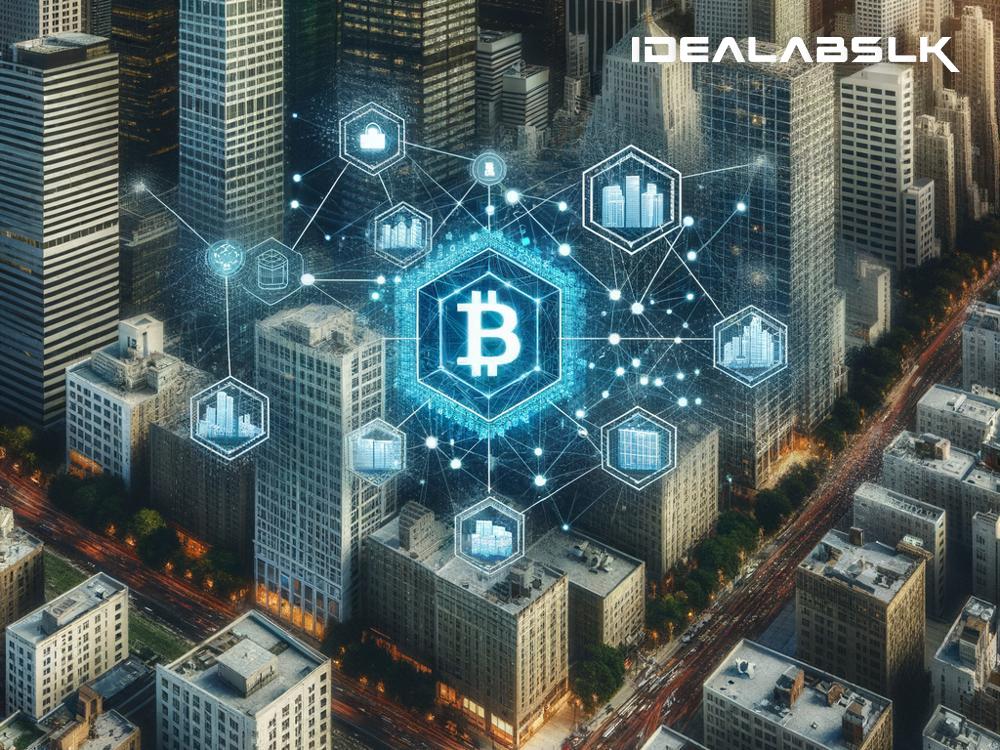Unlocking the Future: How Blockchain is Reinventing Real Estate Security
In the world of real estate, the winds of change are blowing, powered by the revolutionary force of blockchain technology. This innovative digital ledger system, best known for underpinning cryptocurrencies like Bitcoin, is now promising to remodel the real estate sector by enhancing infrastructure security. But how does this technology work, and what does it mean for property transactions and ownership? Let's dive in to understand the transformative potential of blockchain for real estate in simple terms.
What is Blockchain?
Imagine a digital database that is shared across a network of computers, where every transaction is recorded in a secure, unchangeable manner. This is the essence of blockchain technology. Each piece of data or transaction added to the chain is called a ‘block’, and these blocks are linked together in chronological order, creating a continuous line of blocks - hence, a blockchain. What's groundbreaking about this technology is its ability to provide a transparent, tamper-proof record of transactions.
Revolutionizing Real Estate Security with Blockchain
The real estate industry is traditionally seen as a sector resistant to change, often mired in paperwork, prone to fraud, and entangled in red tape. Here’s how blockchain could transform this landscape:
-
Immutable Records: Blockchain creates records that cannot be altered or deleted. In the context of property transactions, this means once the sale details are entered into the blockchain, they become a permanent part of the property's history. This feature significantly reduces the likelihood of fraud, ensuring that every transaction is transparent and traceable.
-
Smart Contracts: Imagine if, upon payment, the property ownership automatically transfers to you without the need for intermediaries like lawyers or real estate agents. This is made possible through 'smart contracts' - self-executing contracts where the terms are directly written into code and executed automatically once conditions are met. This not only speeds up transactions but also cuts down costs associated with third parties.
-
Tokenization: Blockchain allows for the division of property ownership into digital shares or tokens, enabling people to own fractions of property. This opens up investment opportunities to a broader audience, making real estate investment more accessible and liquid.
-
Streamlined Processes: The typical property purchasing process is fraught with paperwork and delays. Blockchain can consolidate all steps of the transaction - from signing contracts to transferring deeds - into a single, streamlined process, making buying and selling properties faster and more efficient.
-
Enhanced Due Diligence: Conducting due diligence before a real estate transaction involves substantial time and effort, requiring checks for outstanding mortgages, liens, and true ownership. The transparency and immutability of blockchain simplify this process, as all relevant information can be easily verified on the blockchain, ensuring buyers are better protected.
Real-World Applications and Challenges
Globally, we are beginning to see blockchain's integration into the real estate industry. For instance, countries like Sweden and Georgia are experimenting with blockchain for land registries, aiming to enhance security and reduce fraud. Meanwhile, startups and corporations are exploring tokenization to democratize real estate investing.
However, blockchain in real estate is not without its challenges. Regulatory hurdles, privacy concerns, and the need for industry-wide adoption are significant barriers. Moreover, the transition to a blockchain-based system requires change management and education, as all stakeholders must understand and trust the technology for it to be effective.
The Road Ahead
The journey of integrating blockchain into the real estate sector is just beginning. While the road ahead may have its bumps, the potential benefits of enhanced security, efficiency, and accessibility cannot be ignored. Blockchain stands poised to redefine property transactions, making them more transparent, secure, and streamlined than ever before.
In summary, as we edge further into the digital age, the fusion of blockchain with real estate infrastructure heralds a new era of security and efficiency. By unlocking the power of immutable records, smart contracts, and tokenization, blockchain is not just transforming real estate security; it is laying the foundation for a more transparent, reliable, and inclusive property market. The future of real estate, powered by blockchain, promises a landscape where property transactions are as swift and secure as sending an email. And in this future, everyone stands to gain.
As we continue to witness the evolution of this technology, one thing is clear: blockchain is not just a buzzword; it's a builder of new realities in real estate. Welcome to the future.

